A consistent, unique and powerful tone of voice is critical to building the Lenovo brand. These guidelines will help all writers bring the brand to life.
For guidance on using the word “smarter” in copy, refer to the “Smarter technology for all” section.
Our brand voice
To fulfill our vision of delivering smarter technology for all, we must be purposeful, unexpected and brave in everything we say and do. These are our brand personality traits, and they form the foundation of our brand voice.
The overall effect of our brand voice is that we come across as smart—not smartass, not smarter than everyone else, just smart.
Purposeful
There is an intent to everything we do.
Unexpected
We don’t sound like everyone else.
Brave
We are confident in our point of view.
- Bring a fresh POV to the subject
- Make our writing crisp and have a clear core idea
- Pick our subjects with intention and thoughtfulness
- Convey a positive, human-centered outcome
- Pose thought-provoking questions to invite conversation
- Make it personal, using “you” and “we”
- Use playful wit when appropriate
- Address topics head on with frank, simple language
- Use active verbs and snappy construction
- Keep free from clichés—or put a fresh spin on them
Purposeful tactics
Purposeful means there’s an intent to everything we do. Each experience has a core idea that answers the question, “How does this support our vision of a world with smarter technology for all?”
To write purposefully, we:
Bring a fresh POV to the subject
Ex: We’ve always said strength lies in inclusion, even in our own company, where we’ve been recognized among the Best Places to Work for Disability Inclusion.
Watchouts:
However, we don’t brag about ourselves or our views
Convey a clear core idea
Ex: Say bye bye to Wi-Fi. Meet the world’s first 5G laptop. Yoga.
Watchouts:
If the topic is complex, prioritize what’s most important
Pick our subjects with intention and thoughtfulness
Ex. Join Lenovo’s Senior Design Strategist, Ali Ent, as she talks design and builds a kinetic sculpture on this episode of #STEMatHome. #womeninSTEM
Watchouts:
We join trends only when we have something relevant to contribute
Convey a positive, human-centered outcome
Ex. Compassion that crosses borders. Now that’s smarter.
See how Lenovo’s edge servers are helping doctors provide emergency medical aid around the world. #SmarterSolutions
Watchouts:
Be sure to mention the Lenovo technology that enables the human-centered outcome
Unexpected tactics
Unexpected means we don’t look or sound like everyone else in our category. We may be experts in our field, but we include others in the conversation, and we speak like an equal.
To sound unexpectedly, we:
Pose thoughts and questions to invite conversation
Ex: Did you know hexagons are geometry’s powerlifters? On this episode of STEM At Home, we’re going to test that.
Watchouts:
Address the question; don’t leave the reader hanging
Make it personal, using “you” and “we”
Ex: In these past few months, you’ve likely questioned how to stay close to loved ones, keep your work moving, and be safe in the context of Covid-19. But ultimately, you were able to adapt. At Lenovo, we’ve worked hard to do the same.
Watchouts:
Don’t forget to tie it back to our POV or what we can do
Use playful wit when appropriate
Ex: If you stare at our trackpoint long enough, you’re officially meditating… and people said you wouldn’t learn good habits in quarantine.
Watchouts:
Our humor shouldn’t be silly or slapstick
Brave tactics
Brave means we’re confident in our point of view and we communicate with optimism. We are unafraid of straight talk and don’t hide behind jargon.
To speak and write bravely, we:
Tackle topics head on with frank, simple language
Ex: As a signatory of the #DigitalDeclaration, @Lenovo joins tech developers & service providers in a commitment to ethical leadership in the digital era. Find out what responsible business really means for trust, innovation & inclusion.
Watchouts:
We never take stances that are either tone-deaf or political
Use active verbs and snappy construction
EX: Smarter fights loneliness with a plasma blaster.
See how Lenovo is helping seniors stay connected with gaming. #Smarter
Watchouts:
Avoid word play that makes the reader work too hard
Keep free from clichés—or put a fresh spin on them
Ex: The road to victory is paved in facepalms. We help a top race car builder fail in simulation so that top race teams can win on the track.
Watchouts:
Also make sure not to use any jargon
Punctuation and sentence structure
Brand voice isn’t only about word choice.
Relaxed punctuation and structure can feel more informal, spontaneous and inclusive—which contributes to our brand voice as much as the words we use.
Punctuation and formatting
- Use contractions to make it seem like we’re talking to peers
- Our wit is playful but not silly or childish, so use exclamation points sparingly
- Use sentence case to convey a relaxed tone
Example: Smarter AI is for all; Smarter technology drives progress in Nairobi, New York and New Delhi. - We’re team no Oxford comma — “A, B and C” instead of “A, B, and C.” But use the Oxford comma if it’s needed for clarity.
- Use periods in headlines—for example, Smarter makes the fastest, faster.
Sentence structure
- We can be flexible with structure, like how people speak naturally
- Opt for varying sentence length to mimic back-and-forth conversation; long sentences and paragraphs can feel like a lecture
Adapting for the right audience
It’s important to have a consistent brand voice to build recognition.
But that doesn’t mean we have to sound the same all the time. Just as you’d speak differently to your friends than you would to your boss, be aware of the context of our communications when using our voice tactics.
Tips on flexing for the right audience
- Unexpected tactics like using wit and relaxed punctuation can feel more informal and spontaneous — perfect for conveying the right tone on social.
- However, in contexts like stakeholder reports, we might rely more on purposeful and brave tactics like using vivid adjectives and a fresh take on industry trends.
Points of view
- A combination of first-person (“I” and “we”) and second-person (“you”) writing helps your copy resonate with your audience. Tip: Write as if you’re talking to one person, not a crowd.
Example: With our TruScale Infrastructure as a Service, you’ll get access to the latest data center hardware through a flexible pay-as-you-go model. - Third-person writing (“he,” “she,” “it,” “they”) tends to be more formal. Reserve third-person writing for contexts like stakeholder reports or press releases.
Example: With Lenovo TruScale Infrastructure as a Service, companies get access to the latest data center hardware through a flexible pay-as-you-go model.
Before and after examples
Before
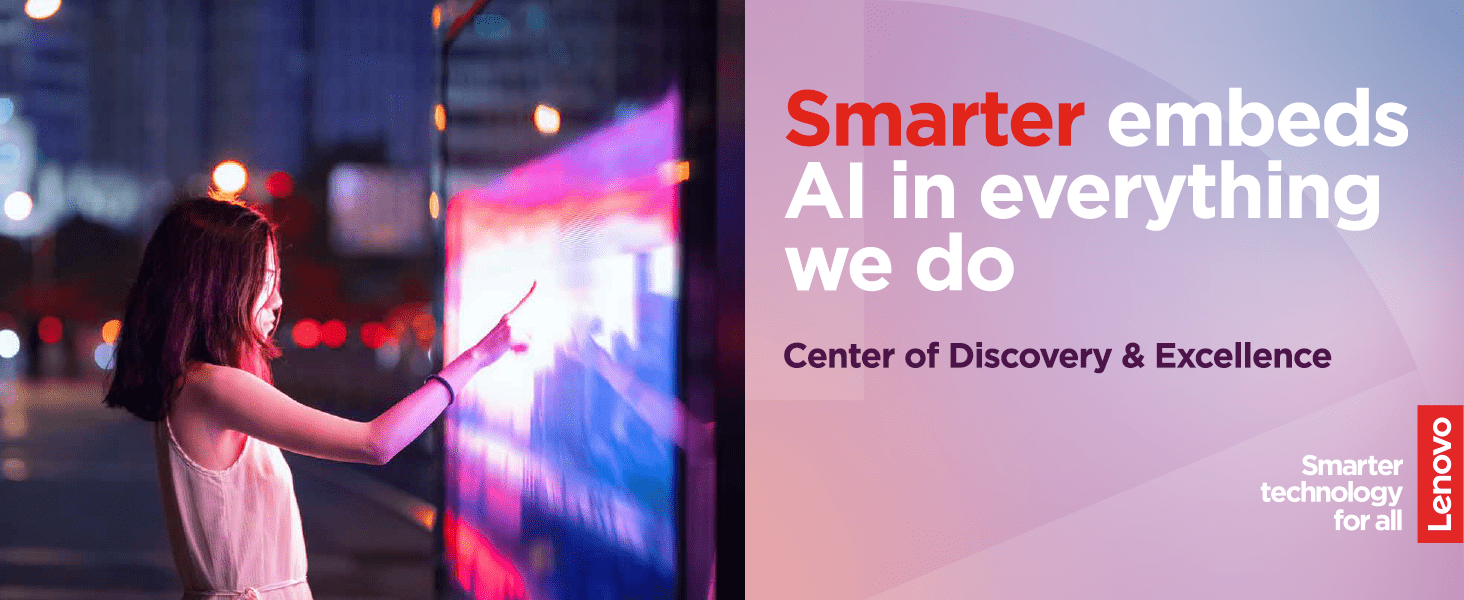
After
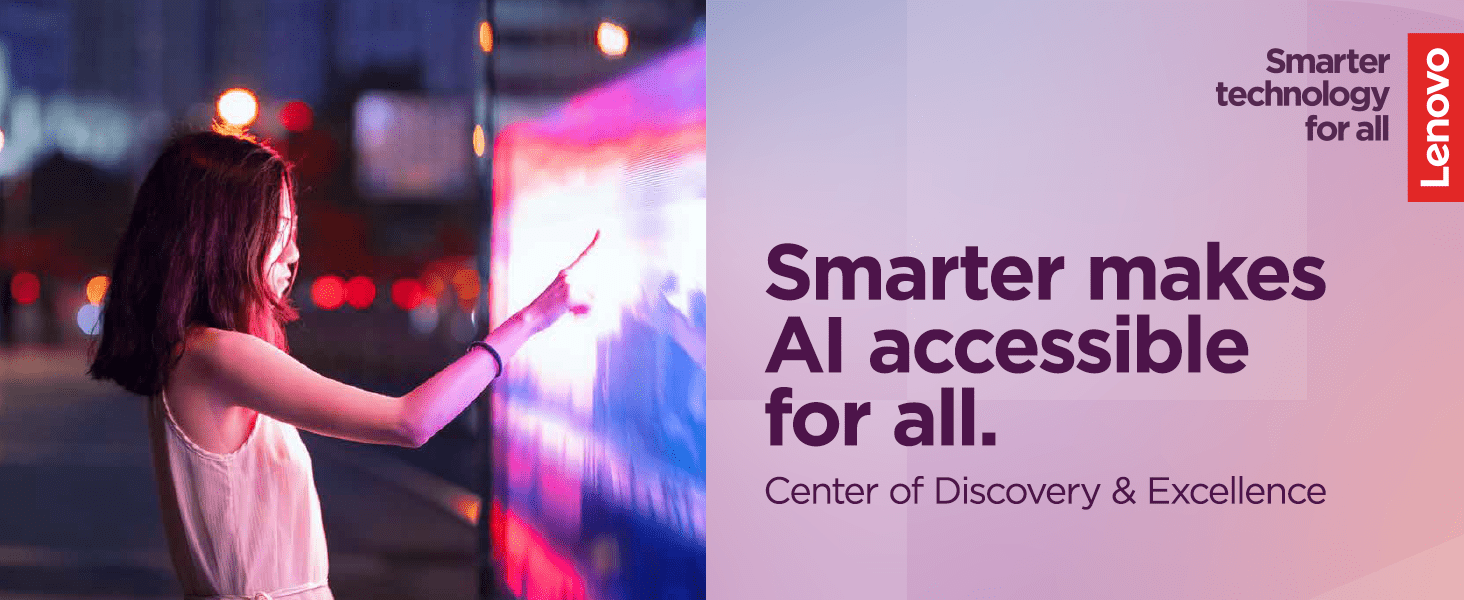
In this example, we rewrote the headline to focus on the outcome while making it sound more conversational.
Before

After
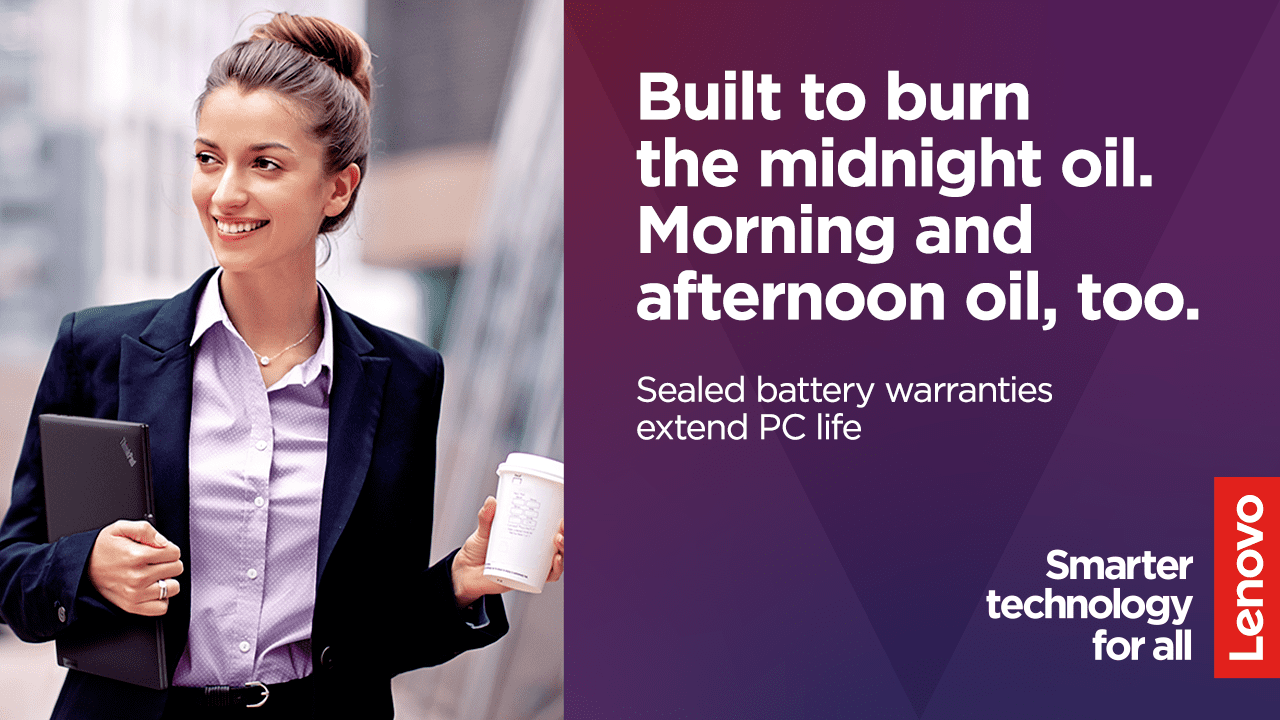
The new headline adds personality and intrigue.
Before

After
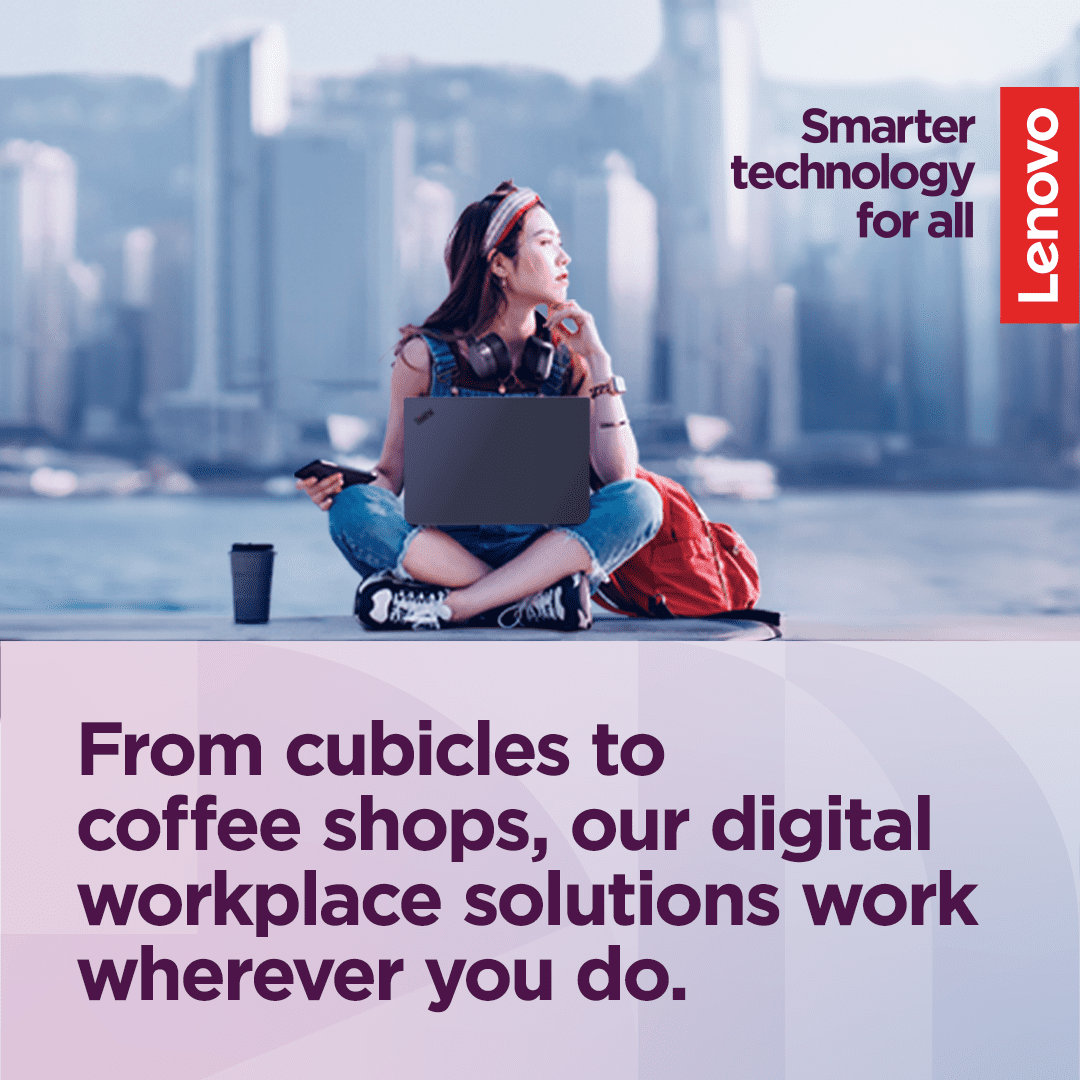
The revised headline speaks to an outcome and avoids technology jargon.
Before
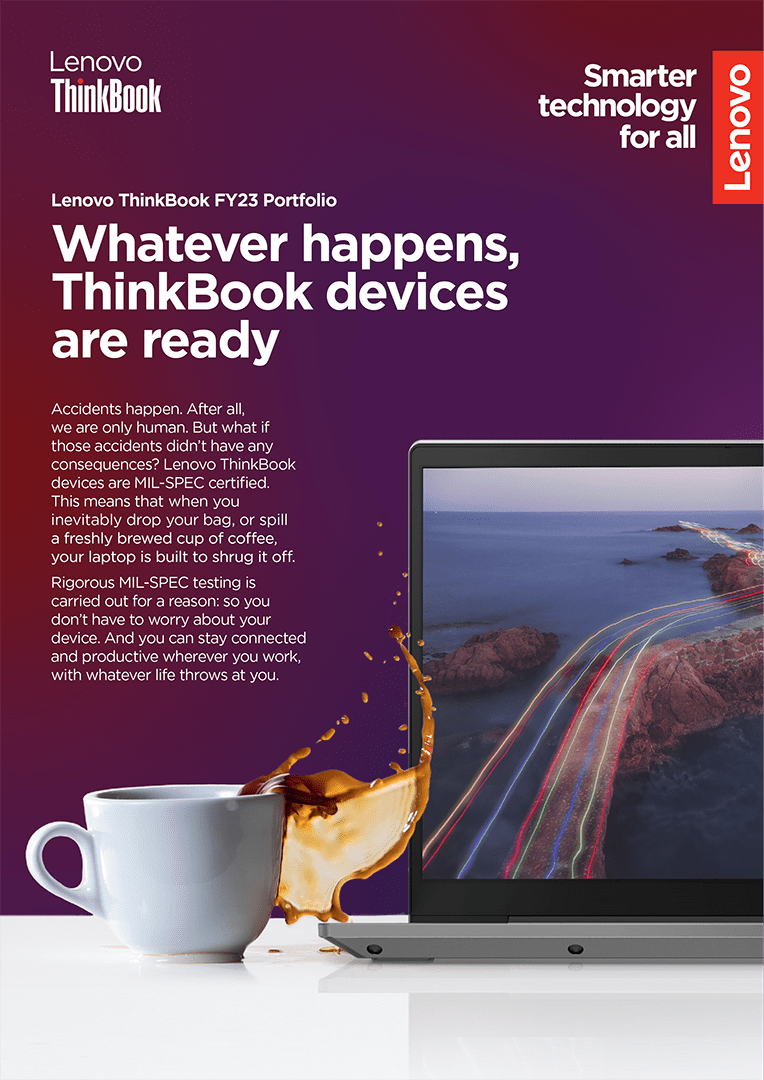
After
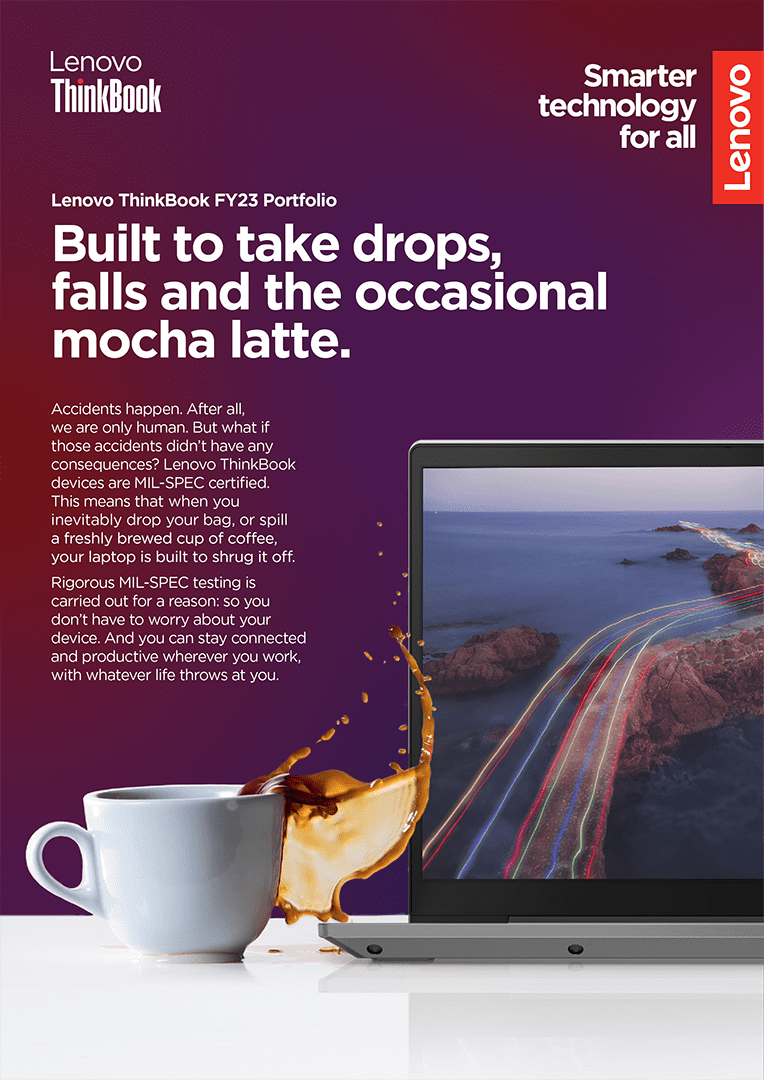
The new headline is playful and invites the reader into the body of the message.
Before
We are Lenovo. We do what we say. We own what we do. We WOW our customers.
Lenovo is a US$62 billion revenue global technology powerhouse, ranked #171 in the Fortune Global 500, employing 77,000 people around the world, and serving millions of customers every day in 180 markets. Focused on a bold vision to deliver smarter technology for all, Lenovo has built on its success as the world’s largest PC company by further expanding into growth areas that fuel the advancement of ‘New IT’ technologies (client, edge, cloud, network, and intelligence) including server, storage, mobile, software, solutions, and services.
This transformation together with Lenovo’s world-changing innovation is building a more inclusive, trustworthy, and smarter future for everyone, everywhere. To find out more visit https://www.lenovo.com, and read about the latest news via our StoryHub.
After
We’re on a mission to put smarter technology into the hands of everyone, everywhere.
And speaking of hands, we could use yours.
We’re a $62 billion global technology powerhouse. #171 in the Fortune Global 500. 77,000 employees around the world.
We’re the largest PC company in the world too, but we’re so much more than devices. We’re leading the way with ‘New IT’ technologies like client, edge, cloud, network and intelligence to make our ambitious goals a reality.
And we believe in the power of technology to do good. So, we’re creating a more inclusive, trustworthy and smarter future for everyone, everywhere. If our mission aligns with yours, apply now. https://www.lenovo.com.
In this example, we’ve rewritten a career posting to include more personality and a conversational tone.
General writing tips
Think about the main idea.
What do you want your audience to take away from your piece of writing? Make sure everything you write adds to that, and don’t be afraid to cut things that aren’t relevant. Less fluff = more clarity.
Sound it out.
Read and re-read the copy to yourself to make sure it passes the “no corporate jargon” rule. If it sounds formal when you read it out loud, keep pushing it to be more conversational.
Apply tactics thoughtfully.
You don’t need to use every tactic, or even a majority of them, in every piece of writing. Instead, focus on the ones that are most relevant to your specific communication.
Change things up.
We can be consistent with our tone of voice while still varying the way we construct our writing. Changing up stylistic elements makes us feel fresh and helps us stand out from the corporate crowd.
- Follow a short sentence with a long one
- Ask a question
- Use italics, bolding or even *asterisks*
- Throw an em dash in there…or even an ellipsis
- Bullet it out
Highlight benefits instead of features.
We believe that technology should lead to positive human outcomes. Be specific in your message and focus on why it matters.
Evoke emotion.
We may be a tech company, but we’re not robots. Using emotive language creates a stronger connection with your audience.
Use inclusive language
Practices to follow
Practices to avoid
